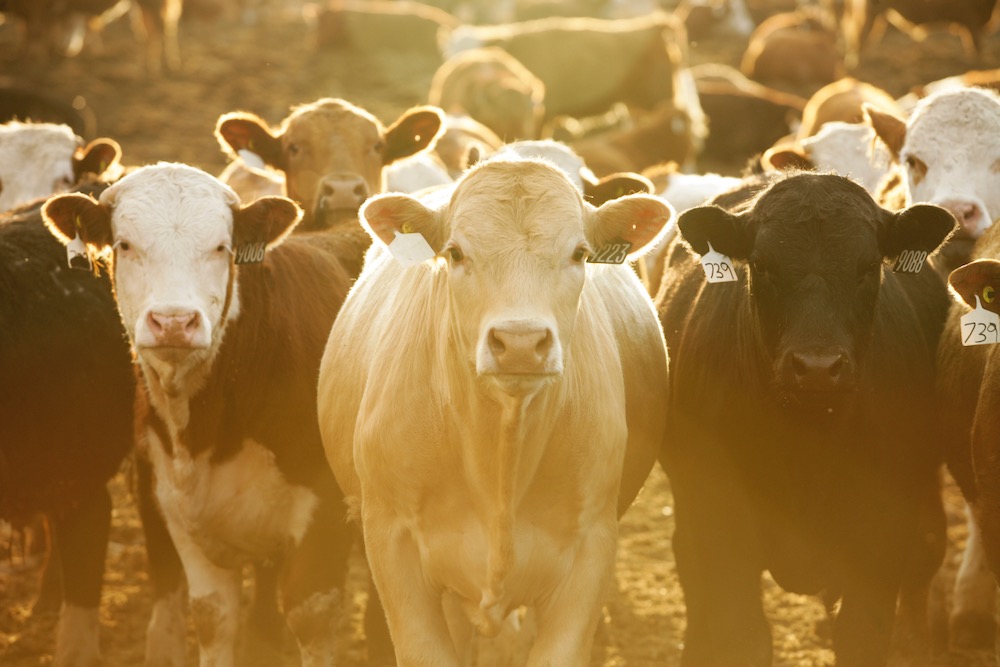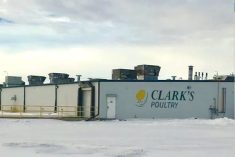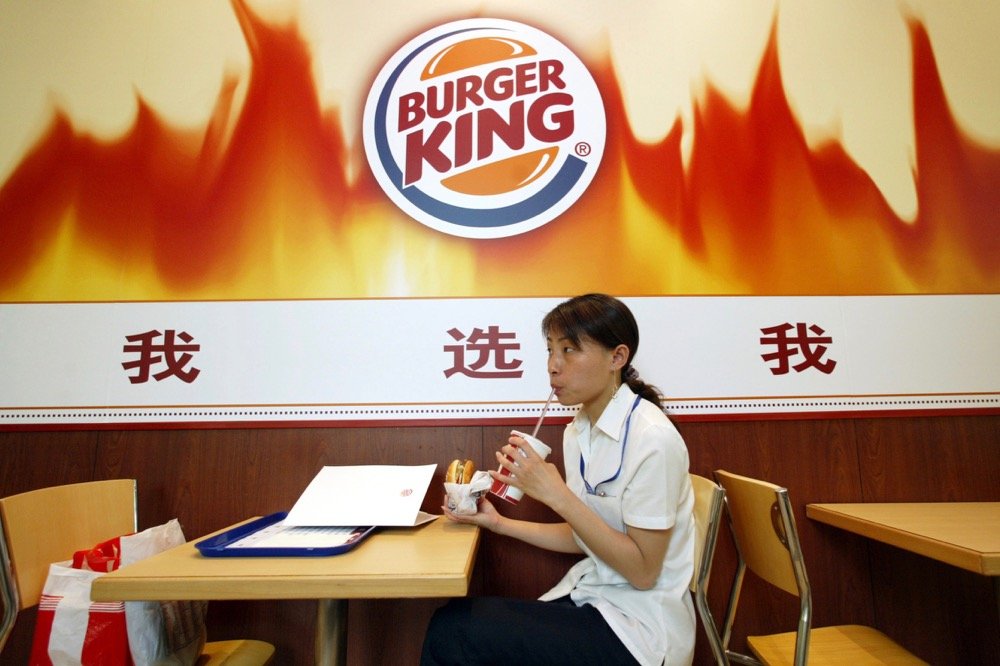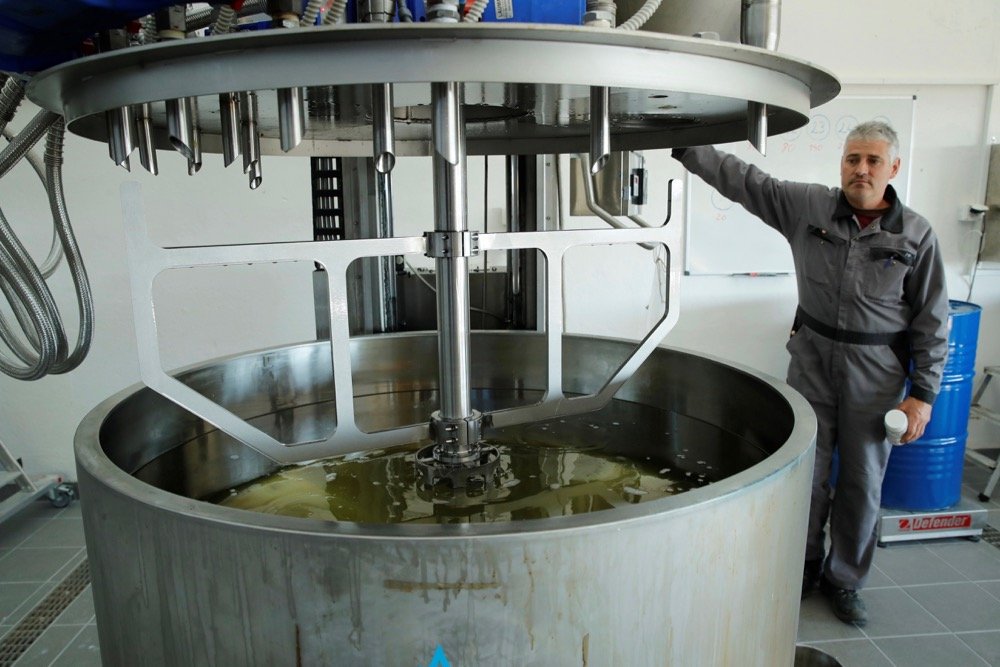Winnipeg | Reuters — Canada’s egg farmers plan to replace conventional hen cages with more humane conditions over the next 20 years, amid growing pressure from consumers, restaurants and food companies.
The plan — announced Friday by Egg Farmers of Canada, an industry group that manages nearly all of the country’s egg supply — comes as various fast-food and quick-service restaurant chains set targets for only buying eggs that come from cage-free hens.
“This isn’t something we’ve done because of companies making announcements,” said Roger Pelissero, a farmer at West Lincoln, Ont., southeast of Hamilton, and first vice-chair for the national group. “We always have in our mind what is best for our hens.”
Read Also

U.S. livestock: Cattle futures drop on Trump call for lower prices
Cattle futures on the Chicago Mercantile Exchange dropped sharply on Wednesday, reacting to comments from United States President Donald Trump…
The organization, which represents over 1,000 egg farms across the country, mapped out a plan that immediately commits egg farmers not to install any new conventional cage housing.
About 90 per cent of egg production in Canada is now in conventional housing, commonly known as battery cages, which are slightly larger than filing cabinet drawers and hold several birds each. About 10 per cent is in enriched housing, free-run, aviary or free-range formats.
The plan, to be overseen by a national working group in collaboration with the entire egg supply chain, calls for a shift to about a 50-50 mix in eight years, moving to about 85 per cent alternative over conventional in 15 years.
“All production would be in enriched housing, free-run, aviary or free-range by 2036, assuming the current market conditions prevail,” the organization said in a release, adding those projections “represent a realistic forecast of what is achievable.”
Manitoba Egg Farmers, for one, already announced in late 2013 it would ban the installation of new conventional cages beyond 2014.
Egg Farmers of Canada said it also hopes to discuss, with stakeholders and consumers, the benefits of the enriched-housing model, “which do not seem to be well or widely understood outside of the industry.”
Enriched housing provides birds with more space per bird than conventional battery cages, along with perches, scratching surfaces and private nesting boxes.
While not free-run or free-range, the enriched model is meant to maintain food safety, reduce mortalities, limit cannibalism and other aggressive behaviours and ensure adequate feed and water for all birds.
“This announcement is a huge shift and we’re confident the market will make it happen before 2036,” said Sayara Thurston, a campaigner with Humane Society International, adding that U.S. farmers have not made a similar pledge.
Egg Farmers of Canada’s announcement follows a pledge Monday from Restaurant Brands International (RBI), operator of the Tim Hortons and Burger King chains, that it would move to 100 per cent cage-free eggs for its Canadian, U.S. and Mexican stores by 2025.
Ontario-based Cara Operations, whose chains in Canada include Swiss Chalet, Harvey’s, Milestones, Montana’s, Kelsey’s, East Side Mario’s, New York Fries and others, announced Thursday some of its brands will shift toward cage-free egg supplies starting this year, with all brands transitioning by 2020.
Mercy for Animals, an animal welfare group known for its releases of undercover video from meat packing plants and barns, had specifically called out Swiss Chalet and Harvey’s in its announcement Monday hailing RBI’s move.
Chains such as Subway, McDonald’s, Wendy’s and Starbucks have made similar commitments in recent months, giving various time frames.
Mercy for Animals president Nathan Runkle, in a separate statement Friday, described the Egg Farmers timeline as “simply outrageous… If egg producers truly care about animal welfare, they shouldn’t allow animals to languish in crowded, filthy cages for decades on end.”
The two-decade target is intended to protect farmers from financial hardship, as non-conventional systems are more expensive, Pelissero said.
Canadian farmers will move to several alternatives, including larger cages with amenities like nesting boxes and perches; housing that allow hens access to the entire barn floor; and farms that allow them outdoors.
The Humane Society is disappointed Canadian farmers aren’t phasing out cages entirely as the difference in welfare between birds raised in any type of cage compared with other methods is “night and day,” Thurston said.
Pelissero said there are downsides to any system. Chickens that have too much freedom can peck each other to death.
Canada, which manages supply and prices, produces eggs mostly for its domestic market. Prices paid to farmers reflect costs of production, meaning that egg buyers and possibly consumers will absorb higher prices, Pelissero said.
Most of a farmer’s cost of production is from feed, however.
— Rod Nickel is a Reuters correspondent covering the agriculture and mining sectors from Winnipeg. Includes files from AGCanada.com Network staff.
CORRECTION, Feb. 9, 2016: A previous version of this story misidentified Manitoba Egg Farmers as “Manitoba Egg Producers.” We regret the error.












